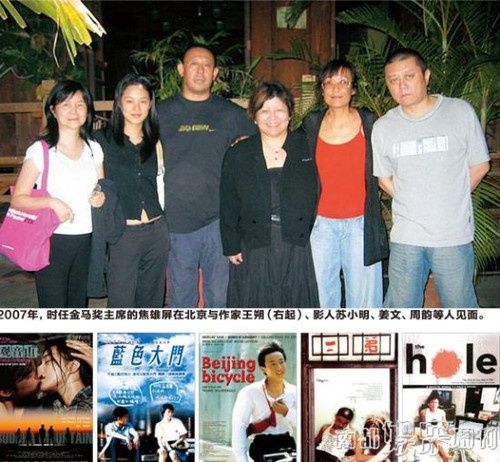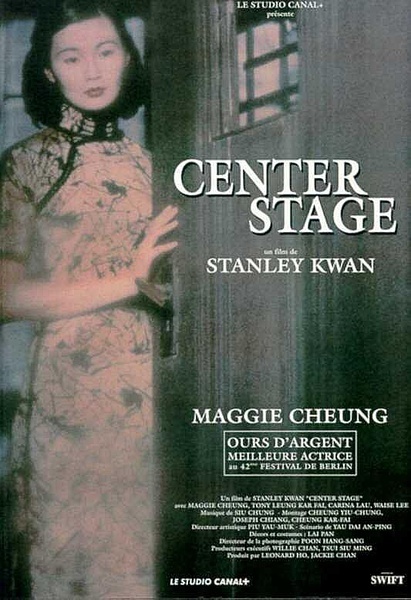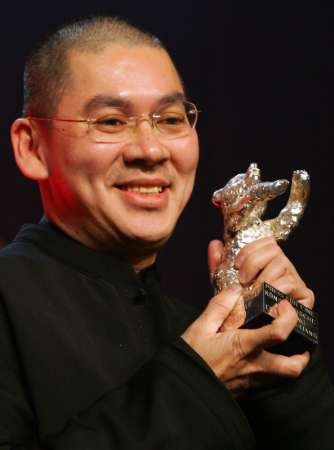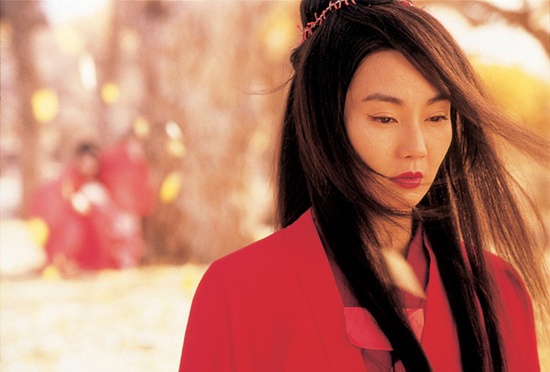
Peggy Chiao and mainland filmmakers

Ruan Lingyu.The script also comes fromPeggy ChiaoWith Qiu Dai Anping’s hand

Hung Chiu Ping worked as a producer for Cai Mingliang and others.
Studying in the United States in the 1980s,Peggy ChiaoChina films were chosen as the research object, and in the following two or three decades, she served as a judge, guest and curator of international film festivals, constantly promoting the dialogue between Taiwan Province and even Chinese films and the international community. She often thinks that the title of "godmother" in the film industry is inaccurate. However, in the past 30 years, she has always been closely related to the Chinese film industry, from her cooperation and solidarity with Taiwan’s new film movement to her acquaintance with mainland filmmakers. It has been more than ten years since we entered the 21st century. How to treat the transformation bottleneck of the fifth and sixth generations of directors who knew about childhood? What kind of power contrast will cross-strait films that once faced each other across the sea show after integration and development? There is still her keen eye behind all this.

Zhang Yimou was influenced by Crouching Tiger, Hidden Dragon, and produced such works as Hero and House of Flying Daggers.

Chen Kaige has been adjusting himself from "Promise" to "Search".
In 1988, Peggy Chiao met the "fifth generation" filmmakers from China, such as Wu Ziniu, Tian Zhuangzhuang, Zhang Yimou, Gu Changwei and Gu Changning, at the film festivals in Tokyo and Hongkong respectively. The estrangement has been long, and the filmmakers of the two "camps" have met each other for a long time. More than twenty people often sit on the floor in hotel rooms, smoking and talking about movies all night. As a result, they are complained by hotel guests for a while, and the fire alarm of hotel employees is caused by smoke for a while. The era when people still need to chip in to buy leather jackets for Zhang Yimou and bags for Gong Li, the era when RMB and NT were exchanged and signatures were given to each other, such as "Zhang Bandit’s Art Plan", "Tian Bandit’s Strong" and "Jiao Bandit’s Strong Screen", maybe it should really be called the innocent era of Chinese movies. Times have changed. In the era of billion-dollar clubs, when a phone call has to be transferred through seven or eight people, Peggy Chiao’s observation of these great directors is still not far away.
Reporter: You have always had a close relationship with mainland filmmakers, such as the "fifth generation" directors who knew from childhood. What do you think of their performance in creation and market in recent ten years?
Peggy Chiao: You know, times are changing too fast. At that time, everyone’s creative goals, motivations and practices were relatively simple. Therefore, everyone is willing to do the only consideration in order to create this matter. For example, at that time, what the "fifth generation" directors wanted to do most was to make movies, or to innovate the film language. However, the times have changed so much. During this decade, China’s film industry has made rapid progress, and the situation of Taiwan Province’s films and the mainland has changed like a roller coaster. So in fact, it is not only their "fifth generation" directors who are questioning the changes in the whole system. Everyone in every link is learning the new industrial environment. So this process is so challenging for everyone that each of us may have different decisions and steps. Some directors are like Zhang Yimou, who was influenced by him in those years.Crouching Tiger, Hidden DragonThe drastic influence on the industry, so he will devote himself to the changes in the industry, which is like following and even. Then he has been groping for the creation and role he should play in the changing environment. In fact, he is also very representative.
Reporter: How do you evaluate the gains and losses of Zhang Yimou’s exploration of commercial blockbusters in the past ten years? Because until 2011, there were some criticisms in the mainland.
Peggy Chiao: I think he doesn’t have enough information under this changing choice. For example, "flowers of war" is a very good theme, but he has some, er, this is actually my responsibility as a producer. The producer can form a very good pulling relationship with the director between grasping the direction and creating, but they can’t. This pulling relationship is positive and benign, and should not be negative and malicious. Usually, if the producer and the director are very accurate in the creative direction and field effect, it is actually a very good balance, because it is a bad phenomenon for the director to be bigger and the producer to be bigger. My feeling is that they are in an unbalanced state now.
Reporter: Now we can see that he has the possibility of adjustment. For example, the partner is no longer Zhang Weiping.
Peggy Chiao: He has changed. But I think people around Zhang Yimou should help him find more opportunities and more favorable partners, instead of choosing the market completely, which is the basis for choosing partners.
Reporter: What about Chen Kaige and Tian Zhuangzhuang’s exploration in these years?
Peggy Chiao: Everyone made a move. It was a decision he made at that time. Like kaige, even later, up to now, he has been adjusting. Then I feel strong, you seeSpring in a small townHe insisted on, and his steps have been changing. Therefore, I have two views on them. One is that I think many mainland friends don’t understand them or criticize them fiercely. Then I hold a similar view. Everyone is looking for a way out in this environment, but this responsibility is not theirs. They are also individuals in the middle of the system. Because the dominant people are changing, and now it is definitely the cinema and film dealers who are dominant, the director needs to have the compromise or anger that Director Tong Wang said, and you have two or more ways to fight. On the one hand, everyone has a lot of moral criticism on them, as if their decision to invest in industry is a surrender to money and interests. I will say that from the perspective of empathy, because film is a way of his creation, he must seek a proper position in this system. But on the other hand, I also think that they may have information problems in the steps of reform, and they may have some deficiencies in decision-making. For example, if you know enough about commercial movies, you don’t know much about the traditions of certain types of movies. When he rushed into this place, he actually needed more information, otherwise his judgment was probably inaccurate. This is where I expect them to strengthen.
Next page:Analysis of the future of the "sixth generation" Jia Zhangke, they are facing a crisis of confidence, and the current transformation is crucial.
关于作者